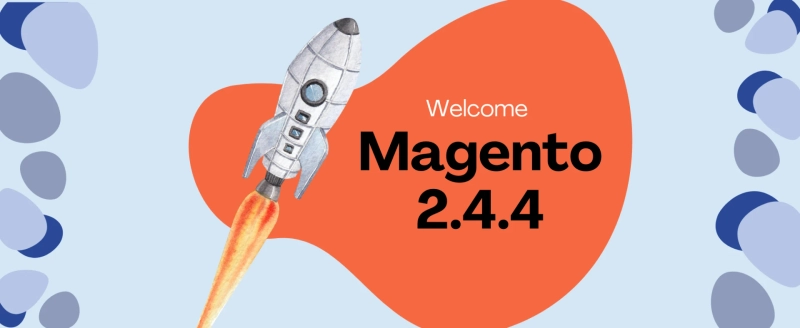Get ready! Magento 2.4.4 will be available on December 8th, and here’s what you need to know about the release! The latest version of Magento 2 brings many upgrades to the platform, including improved performance, developer tools and maintenance/security updates. Don’t worry – your old extensions will work just fine with Magento 2.4.4!
Key features
Magento is an e-commerce platform written in PHP and MySql with custom libraries, object-oriented programming techniques, and a flexible architecture that allows for high levels of customization. The platform is used by many businesses worldwide, including Nike, Tiffany & Co., Vodafone, and Ferrari. Its feature list includes multiple languages, SEO functionality, catalogs of unlimited size, and an open extension system that allows developers to easily extend functionality further after purchase.
Migration
If you've been using Magento Enterprise Edition or Magento Go, you'll need to migrate your store in order to upgrade it to version 2.4.4 (or higher). Note that if you're a free user, you won't be able to take advantage of any features included in your new version; migration is only an option for those running on Magento Enterprise or those who pay for premium upgrades and support from a third-party provider like Happy Labs . You can learn more about migration services here .
Upgrading
Magento system upgrades can be difficult and challenging when done improperly, which is why we are confident that hiring a Magento Development Company is your best option when making any future upgrades to your platform. Doing so will make sure that everything runs smoothly and will help you avoid having to fix things yourself or hire a new development company later on down the road. It’s always better to get it right from day one!
Benefits of upgrading early
Even though we still have several months until Magento 2.5 is scheduled for release, now is a great time to start planning your upgrade . Why? Because if you wait too long, you could miss out on important features and fixes that are included in future releases. Upgrading early also gives you more time to test and prepare for any new changes or issues that might arise during your transition process. So what do you need to know about upgrading from Magento 2.4.x to 2.5? Let’s take a look at some of our favorite upgrades coming soon with Magento 2.4.4
Backward compatibility issues
When you upgrade from one version of Magento to another, it’s critical that your new code doesn’t break your old code. That’s why at Magento we spend an enormous amount of time testing for backwards compatibility issues – so that you don’t have to worry about them when it comes time for your own upgrades. With each new release, we want you to feel safe and confident that you can smoothly make your way from one version of Magento to another.
Other upgrades in progress
Developer productivity enhancements will continue to be a focus for Magento as we work toward release of version 2.5 in late Q1 2017. These enhancements include support for PHP 7 and improved asset compilation, as well as fine-tuning our APIs, tooling, and deployment strategy based on direct feedback from developers. We’re also working with partners to build new extensions that can be used with both Magento 1 and 2. We’ll share more details about these initiatives over time.
Conclusion
The new features were made based on valuable feedback from Magento merchants and partners, and are part of our continued commitment to provide a fast, secure, scalable commerce platform for businesses around the world. Now is a great time for all merchants using Magento 2.x versions to upgrade their platform before we release 2.5 in 2018—especially those looking for faster site speeds or enhanced scalability, better performance and reliability with more flexibility than ever before when integrating with their commerce ecosystem partners.
For these reasons, it’s recommended that you run your Magento software on an application server such as Nginx or Apache (both free) while avoiding use of standalone PHP servers such as mod_php when possible. The best part about Magento’s software updates? They're free!


